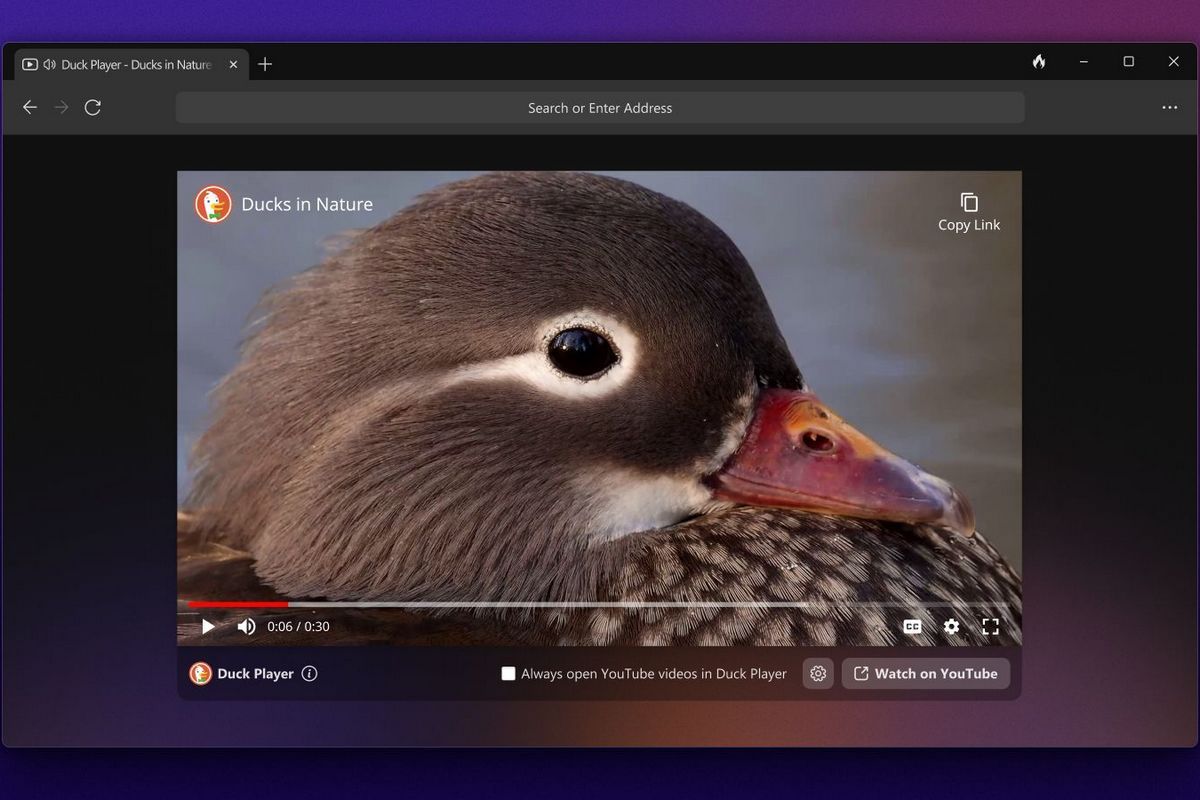DuckDuckGo has finally launched the first public beta of its web browser on Windows. The launch comes around three and a half months after the company released the closed beta for Windows users, and almost a year after the beta version launched on Mac. As you'd expect from DuckDuckGo, the browser comes with a ton of privacy and security-related features, including a built-in password manager and an ad blocker. The new browser also comes with a native video player (Duck Player) that can block tracking cookies and personalized ads on YouTube.
Other native features of the WebView2-based browser include forced encryption and a cookie pop-up management that automatically selects the private options and hides the 'I accept' prompt on consent pop-ups that have become a feature on most modern websites. The browser also has a 'Fire button' that instantly closes all tabs and clears website data. It will also offer the email protection feature that will keep your email address private even when you sign up with random web services.
All of the new features will be enabled by default, so users won't have to fiddle around with the settings to switch them on manually. In an official blog post, the company described the new features as "best-in-class privacy protections" that will help improve people's experience on the web. The company also claimed that the DDG browser will consume 60 percent less data than Chrome by blocking trackers before they even load.
According to DuckDuckGo, one of the main reasons for the delayed launch on Windows is the varied hardware and software configurations on PCs, relative to Macs. "During our brief closed beta period, we’ve been gathering testers’ feedback and making improvements to meet as many of those needs as possible," said the company. However, this is still a beta, so despite the best efforts of the developers, there could very well still be a few bugs here and there, meaning you'll need to keep that in mind when using the app.
The DuckDuckGo browser doesn't have extension support yet, but the company says that it is planning to incorporate that feature in the future. In any case, the browser already has many native features, like a password manager, ad-blocker, and forced encryption that most other browsers need third-party extensions for. The company also says that it plans to open-source its browser in the future, like it has already done with some of its existing apps and extensions.

